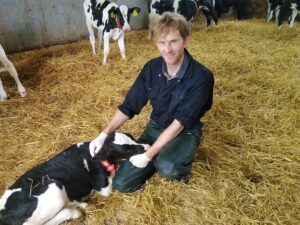 Pig farmers concerned with reducing antibiotic use could learn from practises used in the poultry industry to promote herd health.
Pig farmers concerned with reducing antibiotic use could learn from practises used in the poultry industry to promote herd health.
Antibiotic reduction is a hot topic right now, following the publication of new targets released this week. The poultry industry has made huge developments recently – without compromising on health status – and applying the same principles to the pig sector could provide answers for livestock producers across the UK.
“While there is pressure from all angles to cut down on antibiotic usage, it’s not simple case of just deciding to not use them,” explains Richard Turner, director at Applied Bacterial Control. “However, focusing on the microbiome in pigs can be a useful tool in a producer’s armoury to minimise usage.”
The microbiome is the collective name for the microbials that inhabit animals and play a key role in influencing health in livestock. “While there is still much to be discovered about the microbiome in pigs there is a lot that can be learnt from the work of the poultry industry,” adds Mr Turner. “The key thing we have derived is that the correct balance of bacteria has a direct correlation with improved health status,” adds Mr Turner. “Good management practises on farm will encourage the development of good bacteria in the pig’s gut – promoting a strong immune system and reducing the need for antibiotics.”
Sows are responsible for the transfer of healthy bacteria to piglets during birth – therefore, it’s crucial to carefully manage the rearing environment, warns Mr Turner. “Water management is one area to focus on and it’s important to ensure a clean supply and a cleanable water system is in place. As well as this, pig producers should ensure not only that housing is washed down properly but also the correct products are used to ensure all harmful bacteria is removed.”
The use of probiotics is also a useful tool to avoid antibiotic treatment, in combination with short chain fatty acids (SCFAs) to encourage healthy bacteria in the gut. “This can reduce the risk of the development of salmonella and E-Coli bacteria and help to promote a healthy gut flora.”
Stress is an often overlooked factor but can seriously impact the well-being of a herd. “One of biggest periods of stress occurs at weaning,” explains Mr Turner. “Stress often leads to disruption of the gut and more importantly the microbiome.”
While antibiotics are useful as a one-off treatment – with immediate impact on sick animals – it’s important to take a holistic approach to animal health and management. “Antibiotics cannot just be removed immediately and similarly, changing the gut by altering management techniques also doesn’t happen overnight,” he adds. “However reverting back to basics in terms of management and keeping an eye on finer detail will play a huge role in helping the pig industry gradually shift away from high levels of antibiotic usage.”




